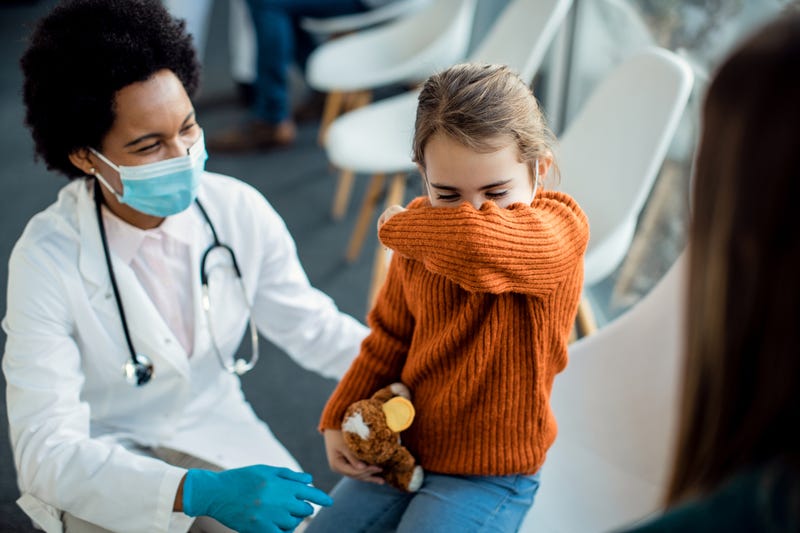
Croup, or bronchiolitis, is a common childhood illness caused by seasonal viruses. This year, the omicron variant of COVID-19 is leaving unvaccinated children under 5 years old vulnerable to it.
One of the telltale symptoms of croup is a harsh, barking cough.
This cough may be alarming to parents – especially those with young children who cannot yet get a COVID-19 vaccine – but croup is typically not especially dangerous, according to NBC News.
Viruses such as parainfluenza and respiratory syncytial virus are usually the cause of croup in children. According to information provided by the National Center for Biotechnology Information, croup accounts for 7 percent of hospitalizations in children younger than five years of age in the U.S. Death from coup is rare.
“As pediatricians, seeing more kids with croup and bronchiolitis is oddly reassuring,” said Dr. Amy Edwards, a pediatric infectious disease expert at University Hospitals Rainbow Babies & Children's Hospital in Cleveland, Ohio, “because we've been dealing with those conditions for our entire careers.”
“Croup is a bread and butter pediatric diagnosis,” said Dr. Mark Kline, the physician-in-chief at Children’s Hospital New Orleans.
“Infectious croup is one of the first diseases you learn about when you're an intern in pediatrics.” Kline's team has noted an increase in COVID-related croup this year.
Doctors believe that omicron has been contributing to croup because it settles higher in the respiratory tract than other forms of the virus. Since children have small, narrow airways, it takes just a small amount of inflammation to clog them, explained Dr. Buddy Creech, a pediatric infectious disease expert and director of the Vanderbilt Vaccine Research Program at the Vanderbilt University Medical Center in Nashville, Tenn.
He and his colleagues have also noted “croup-like presentations” in young children who test positive for COVID-19. Dr. Saif Al Qatarneh, a pediatric pulmonologist at West Virginia University, said that he, too, has noted an increase in such diagnoses in tandem with a rise in pediatric COVID-19 cases.
Al Qatarneh said he and his colleagues are concerned about the coming weeks as omicron continues to spread. He said parents of young children should prepare for cases of croup.
“We are still two to three weeks away from the peak of omicron,” he said. “The smart thought is to get ready for more patients getting bronchiolitis in children and infants.”
Though Dr. Anthony Fauci, Chief Medical Advisor to the President, said this week that omicron generally causes less severe illness than other forms of SARS CoV-2, he said there are still risks associated with it.
“But remember the caveat: rapid community spread is seeing larger numbers of children being hospitalized — again, mostly among the unvaccinated,” said Fauci, the president’s chief medical adviser.
For children who develop croup, Edwards said the “main treatment is to keep the upper airways open and clear until the inflammation subsides.”
Some patients may require a few days of steroids, oxygen support or breathing treatments and it does occasionally result in severe complications requiring hospitalization. However, the condition often goes away on its own.
According to an NBC News analysis of Health and Human Services data, at least 16 states have broken records for the number of pediatric hospitalizations linked to COVID-19. Indeed, nearly 40 percent of the pediatric hospitalizations at Texas Children's Hospital in Houston include children under 5, said Dr. Jim Versalovic, a pathologist who is a co-leader of the hospital's COVID-19 Command Center.
Experts say keeping young children away from people who are unvaccinated or ill is the best way to prevent them from getting croup.
“For those who are unvaccinated, this is going to be a rough ride,” said Creech. “That may include our young children, and so we really have to protect them as best we can.”
Pfizer, the company produces vaccine approved by the Food and Drug Administration for children from 5 to 11 years old, is expected to have data on a vaccine for younger children by April. Creech, who is also one of the primary researchers for the Moderna KidCOVE clinical trials, predicted a rollout of vaccines for the youngest children no earlier than this summer.


